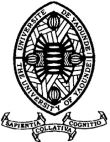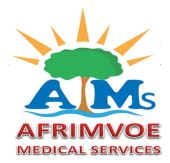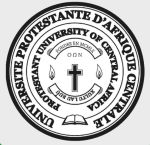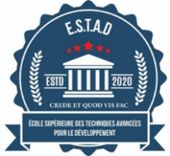Please, Download the Guidelines for Authors Here, and Read Carefully Before Submitting
DOI:
https://doi.org/10.5281/hra.v2i12.6265Abstract
AIMS AND SCOPE OF HEALTH RESEARCH IN AFRICA
Health Research in Africa (HRA) is a peer reviewed scientific that is partnered to Health Sciences and Disease. HRA covers all aspects of medicine, pharmacy, biomedical and health sciences, including public health and societal issues. It is an “online first” publication, which means that all the publications articles appear on the website before being included in the print journal. The papers are published in full on the website, with open access. Our mission is to inform and educate all the health professionals and to promote constructive debate on health issues that matter in the management not only of diseases but of health as a whole. Acceptance of manuscripts is based on the originality, the quality of the work and validity of the evidence, the clarity of presentation, and the relevance to our readership. Publications are expected to be concise, well organized and clearly written. Authors submit a manuscript with the understanding that the manuscript (or its essential substance) has not been published other than as an abstract in any language or format and is not currently submitted elsewhere for print or electronic publication. Manuscripts must be submitted by one of the authors of the manuscript. The submitting author takes responsibility for the article during submission and peer review. The HRA editorial team is based in Yaounde (Cameroon).
EDITORIAL POLICIES
Ethics
HRA’s Publications Policy Committee follows the recommendations of the International Committee of Medical Journal Editors (ICMJE), the World Association of Medical Editors (WAME), and the Committee on Publication Ethics (COPE) for guidance on policies and procedures related to publication ethics. The policies for HRA have been adapted from those three advisory bodies and, where necessary, modified and tailored to meet the specific content, audiences, and aims of HRA.
Peer review process
Research manuscripts are initially checked by the editor in chief or section editor for identification of gross deficiencies. At this stage, the proposal may be rejected. After this initial screening, articles are sent to one or two-reviewers whose names are hidden from the author and whose review is guided by a checklist (single anonymized review). The review summary is signed by the reviewer and is not posted with article. The review process may take days to weeks to reach a final decision that is the responsibility of the editor in chief. The duration from submission to publication may take one to six months (average: 6 weeks). So, the authors should avoid contacting the editorial office less than 6 weeks after the initial submission.
Plagiarism, Scientific Misconduct
Manuscripts are randomly checked for plagiarism with available free tools. Those proven of plagiarism are returned to the authors without peer review. The editors reserve the right to request that the authors provide additional data collected during their investigations. The editors also reserve the right to send a copy of the manuscript and data in question to the author’s dean, university, or supervisor or, in the case of an investigation being funded by an agency, to that funding agency for appreciation.
Conflict of Interest
At the time of submission, authors are asked to disclose whether they have any financial interests or connections, direct or indirect, or other situations that may influence directly or indirectly the work submitted for consideration.
Human and Animal Studies
Manuscripts reporting results of prospective or retrospective studies involving human subjects must document that appropriate institutional review board (IRB) approval and informed consent were obtained (or waived by the IRB) after the nature of the procedure(s) had been fully explained. In any case, medical research involving human subjects should comply with the Declaration of Helsinki (2013).
Authorship
To be listed as an author, an individual must have made substantial contributions to all three categories established by the ICMJE (http://www.icmje.org): (a) “conception and design, or acquisition of data, or analysis and interpretation of data,” (b) “drafting the article or revising it critically for important intellectual content,” and (c) “final approval of the version to be published.” Individuals who have not made substantial contributions in all three categories but who have made substantial contributions either to some of them or in other areas should be listed in acknowledgments.
Please limit the number of authors to ten when this is feasible.
Content licensing - Open access compliance
Articles published in HRA are Open Access and distributed under the terms of the Creative Commons Non-Commercial No-Derivatives License (CC BY-NC-ND 4.0).
Copyright
The authors publishing under this license with HRA retain all rights which means that the authors can read, print, and download, redistribute or republish (e.g display in a repository), translate the article (for private use only, not for distribution), download for text and data mining, reuse portions or extracts in other works, but they are not allowed to sell or re-use for commercial purposes or re-use for non-commercial purposes; without asking prior permission from the publisher, provided the original work is properly cited.
Language
HRA is bilingual and accepts publications in French and English. All the publications should have an abstract in both languages. Whenever possible, picture captions and table titles should be in both languages. All accepted manuscripts are copy-edited.
Particularly if English is not your first language, before submitting your manuscript, HRA advises the work to have it edited for language. This is to ensure that the academic content is well understood by editors, reviewers and readers. There are many providers that offer this service; however, the authors are liable for all costs associated with such services.
Artificial Intelligence (AI)–Assisted Technology
At submission, the authors should disclose whether they used artificial intelligence (AI)–assisted technologies in the production of the publication and how AI was used. However, authors should not list AI and AI-assisted technologies as an author or co-author, nor cite AI as an author.
ARTICLE PROCESSING CHARGES (APC)
Article submission is free of charges, but if the paper is accepted for publication, the author will be asked to pay article processing charges to cover publications costs (220-250 $), depending on the type, complexity and length of the work, and on the number of authors. To guarantee HRA's independence, APC cover publication charges such as electronic archiving, plagiarism checking, editing, peer review process, site maintenance and web-hosting, proofreading, quality check, PDF designing and article maintenance.
Downloads
Published
How to Cite
Issue
Section
License
Copyright (c) 2024 Samuel Nko'o Amvene

This work is licensed under a Creative Commons Attribution-NonCommercial-NoDerivatives 4.0 International License.
Authors who publish with this journal agree to the following terms:
- Authors retain copyright and grant the journal right of first publication with the work simultaneously licensed under a Creative Commons Attribution License CC BY-NC-ND 4.0 that allows others to share the work with an acknowledgement of the work's authorship and initial publication in this journal.
- Authors are able to enter into separate, additional contractual arrangements for the non-exclusive distribution of the journal's published version of the work (e.g., post it to an institutional repository or publish it in a book), with an acknowledgement of its initial publication in this journal.
- Authors are permitted and encouraged to post their work online (e.g., in institutional repositories or on their website) prior to and during the submission process, as it can lead to productive exchanges, as well as earlier and greater citation of published work










